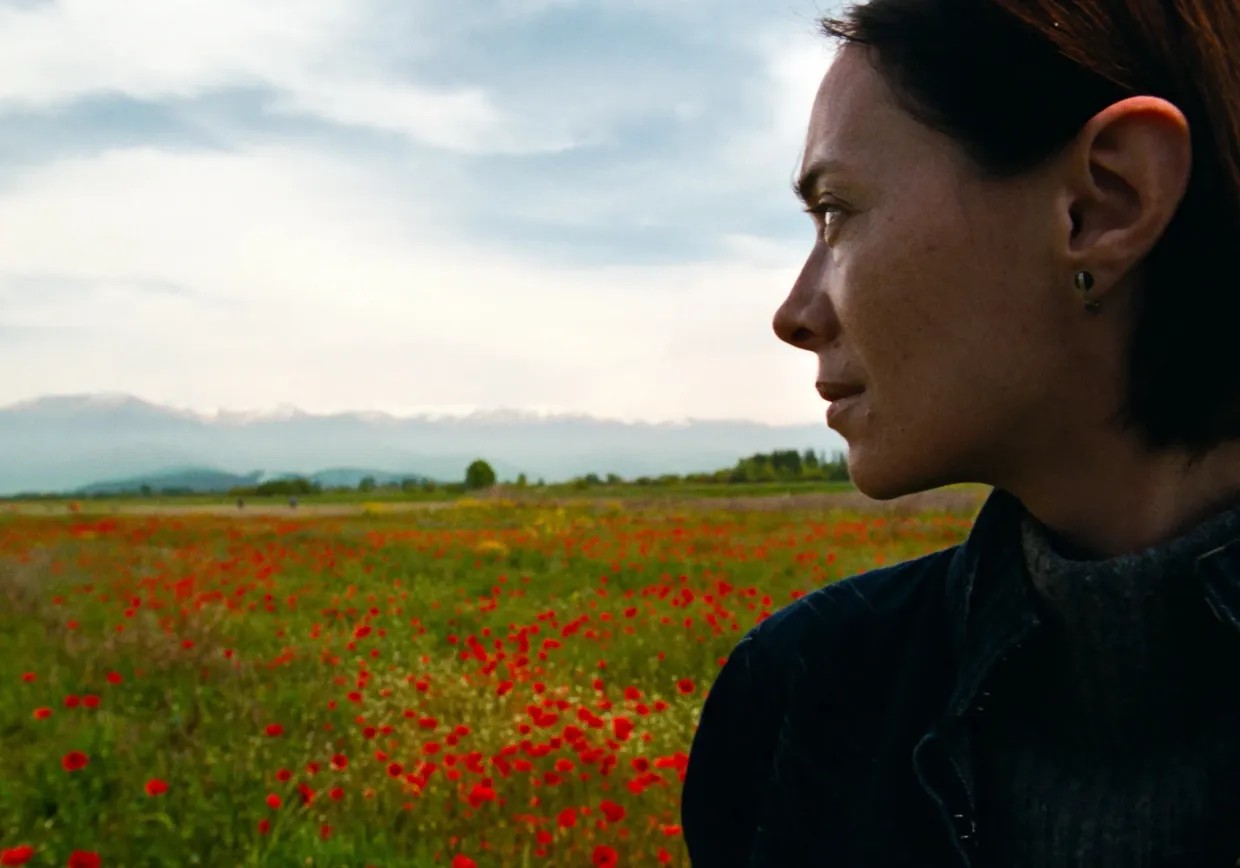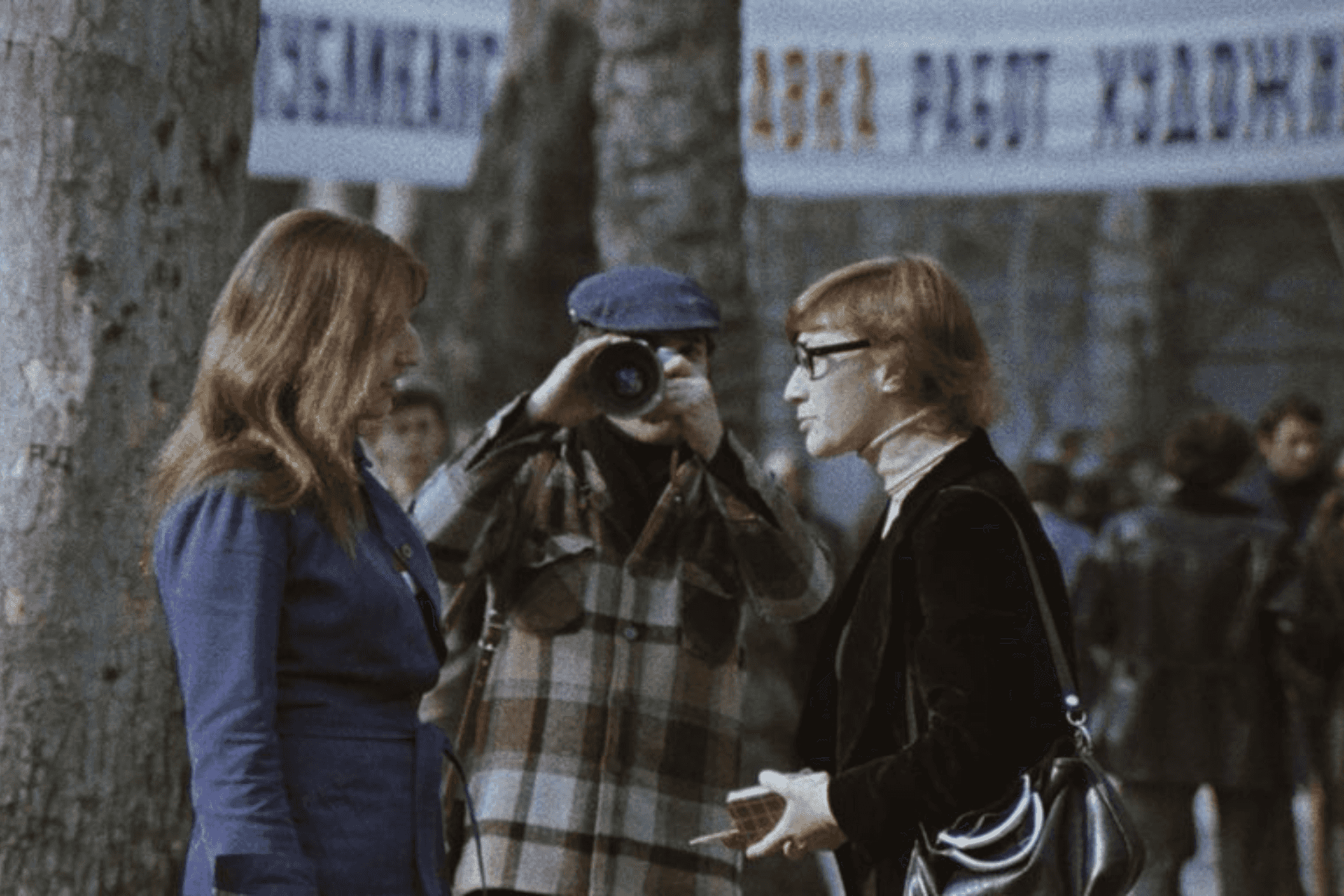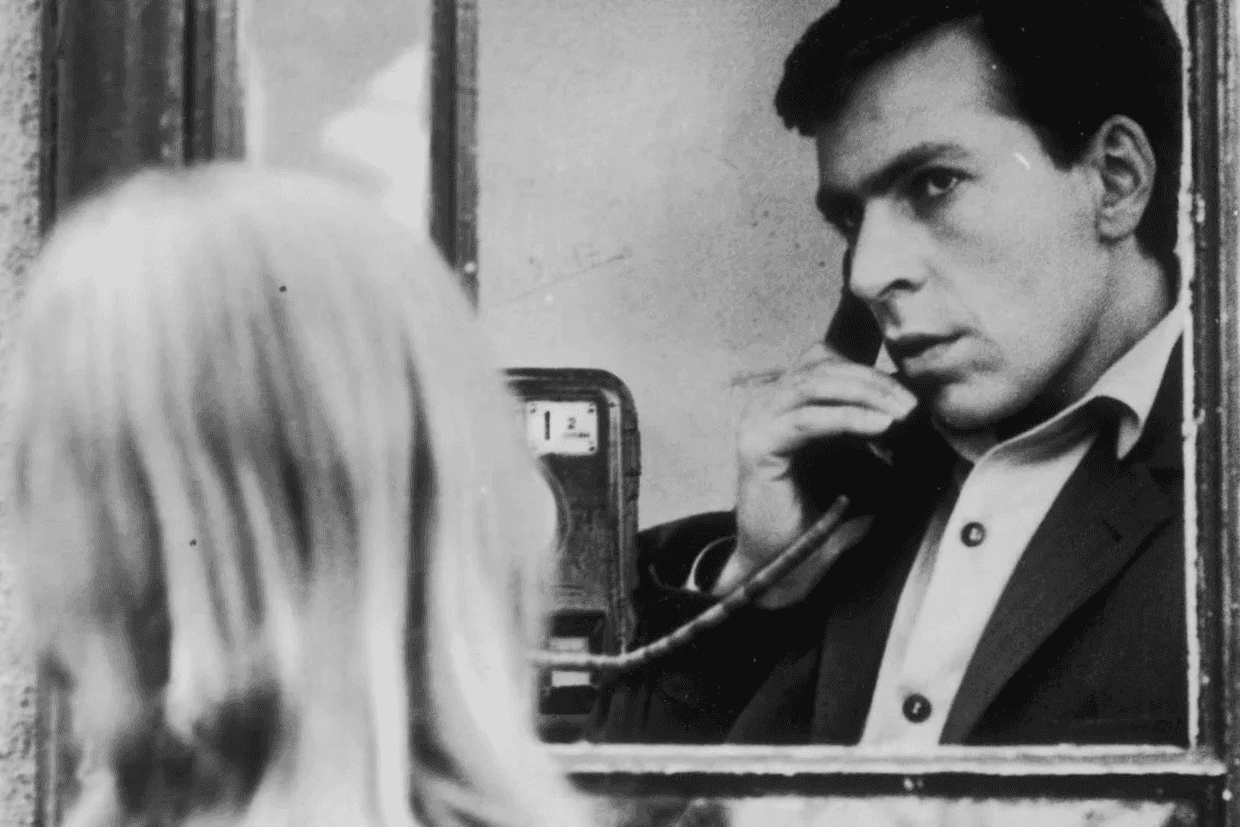
★★★★☆
Dea Kulumbegashvili’s sophomore feature is a hypnotic but unflinching portrait of power, violence, pain and gender in rural Georgia.
At the end of Dea Kulumbegashvili’s debut feature Beginning (2020), a man lies down on the parched earth and slowly disintegrates: ‘For dust you are, and to dust you shall return’. The beginning of Kulumbegashvili’s sophomore feature, April (2024) seems also to draw from Genesis with its amorphous humanoid figure which blindly flounders in a black abyss: ‘Now the earth was formless and empty, darkness was over the surface of the deep’.
Staggering directionless in the primordial void, she — this wheezing, faceless form is clearly a woman — represents a state before creation, something liminal, undefined, and only partly human. Where Beginning was about sacrifice, faith, and ultimately mortality, April explores the emptiness before, after, and sometimes within a life.
It is not too much of a stretch to view April and Beginning as companion pieces. Formally, they are framed by the same claustrophobic square aspect ratio, there is a recurring cast — Ia Sukhitashvili and Kakha Kintsurashvili — and they employ the same punishingly long static takes. Their soundscapes are both almost entirely diegetic, but rendered with a subtly uncanny quality — slightly too loud, too flat, as though asynchronous with the events of the film.
Thematically, too, there is crossover. Beginning contained one of the most protracted scenes of rape in recent cinema; April returns to the terrain of sexual crime with the abuse that its protagonist unearths in a rural abortion patient’s family. But in both films, these singular acts of violence point to something far more structural, an originary sexual crime that is the marginality of women’s bodies.
April centres on Nina (Ia Sukhitashvili), an inscrutable but highly skilled obstetrician working in rural eastern Georgia. Nina, who has a lonesome existence punctuated by anonymous sexual encounters with men she finds on the side of the road, lives for her work and moonlights as an abortionist.
Although abortion is technically legal in Georgia, up to 12 weeks, in the villages where Nina works, Orthodox beliefs, financial restrictions, and sexual stigma prevent women and girls from undergoing the procedure. Nina also prescribes under the counter contraceptive pills to patients like Khadija, a married 16-year-old who is scared to admit that she does not want to be pregnant. But Nina’s life-saving industry is threatened when she delivers a baby who is pronounced dead at birth, and the grieving father, who knows her secret, accuses her of deliberately killing his child.
Plot is often sparsely delivered, and April’s most lingering scenes are ambient rather than expository. Long, shaky POV shots of Nina driving alone down rutted rural roads, and a harrowing abortion sequence that unfolds, in real time, across more than eight unbroken minutes, are interspersed with the motif of the faceless crone from the opening who now embeds herself in the scenery of Nina’s life as a spectral, wasted double. This figure is never explained, but appears to play the role of an abject body — a projection, perhaps, of Nina’s internalised disgust, sexual trauma or disenchantment with society at large, rife as it is with unspoken violence and sexual subjugation.
Although Nina’s motivations are as opaque as her affect is flat, she does lend us a clue about what drives her crusade when she tells a man she picks up about watching her sister become trapped in the mud of a lake as a child and being too scared to act. It is clear that Nina never wants to feel impotent again. Perhaps though, her life devoid of intimacy and defined by her work, she has overcorrected.
It might also be wrong to question her incentives: as Nina tells her colleague, ‘no one wants to do abortions. But someone has to do it’.
Beneath her taciturn aspect, Nina is empathetic and even warm, particularly with her young female patients. She is a victim of patriarchy, and also a one-woman army determined to give some power back to her patients.
However, she is also not an unambiguously moral person, and her decision to perform an abortion on a non-verbal patient at the behest of the latter’s mother raises complex and uncomfortable ethical questions.
As ever in Kulumbegashvili’s work, style is substance, and formalism is one of April’s greatest strengths. It borrows something of its dreamlike register from the poetic cinema of auteurs like Oleksandr Dovzhenko and Tengiz Abuladze. April’s visual language is bold and lurid, struck through with shots of bright, bloody fields of poppies, green meadows with menacing overhanging clouds, and skies of hypnotic cerulean blue, a contrast to Beginning’s muted pastels. These maximalist visions of nature are contrasted with the austere mise-en-scene of the hospital and Nina’s barely-furnished apartment.
The soundscape is also a highlight. The score is sporadic and eerie — for much of April, the only sound is gasping, laboured breathing audible behind the camera. This breathing at first originates from the faceless figure, and then from Nina. Paired with the chronic tremor of the handheld camera lens, it creates an atmosphere first of persistent anxiety, and then of dread.
April is a film both spiritual and deeply physical. Physical in part because of the constant violence its women’s bodies undergo: childbirth (in the form of a long aerial shot of a real birth that Kulumbegashvili was allowed to film after painstakingly embedding herself in the hospital), violent abuse by sexual partners, painful procedures, and murder. But for the viewer, too, this is an experience of embodied spectatorship, designed to elicit a visceral response.
In all, this mystifying, startling, otherworldly film left me completely enchanted. Kulumbegashvili’s films leave rich room for interpretation, but I found with both Beginning and April that the best viewing experience came from surrendering my analytical tools and falling into the dreamlike world of the film. You can think deeply about its symbols, but you can also let it make you feel deeply, gnawingly.
Kulumbegashvili shot April in secret and has told interviewers that it will likely never be screened in Georgia due to its content. She also doubts that she will be able to make another film in Georgia in the foreseeable future.
Was it worth it? Beyond a doubt.
April (2024), directed by Dea Kulumbegashvili, is currently screening in the UK.
🗞️ Subscribe to the OC Culture Dispatch
For our culturally curious readers: a free, biweekly selection of film, book, and music recommendations from the Caucasus. Our team offers a varied selection of hidden gems, cherished classics, and notable new releases from all over the region, included in our newsletter.








